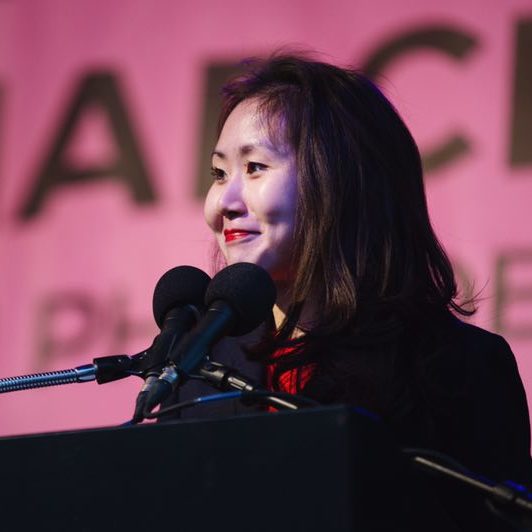This semester, each PCUR will interview a Princeton alumnus from their home department about his/her experience writing a senior thesis. In Looking Back on Undergraduate Research: Alumni Perspectives, the alumni reveal how conducting independent research at Princeton influenced them academically, professionally and personally. Here, Vidushi shares her interview.
~~~~~~
Lindy Li ‘12 is a familiar name for many students on our campus. A philosophy major who served as USG Class President for all four of her years at Princeton, Lindy Li ran for Congress in 2016 at the age of twenty-four. When we chatted on the phone as part of this semester’s seasonal series, I was struck by her genuine enthusiasm and the way she has woven lessons from her undergraduate research in philosophy into her current career in politics.
Here’s what I learned:

Vidushi Sharma: Why did you decide to major in philosophy?
Lindy Li: I always loved literature and learning about the most important questions in life. Philosophy was a small department that offered deep student-professor relationships.
VS: Can you tell us about your independent work?
LL: I worked on the ethics of climate change legislation, which is one of the most defining issues of the 21st century. I’m still heavily invested in the issue– we have piles of cash in our government, but no clean air to breathe. My adviser was Professor Anthony Appiah, who is at NYU now–I felt like he gave me free range to steer the thesis to fit my research interests.
VS: What advice would you give students writing theses today?
LL: First, find a professor who is deeply invested in your thesis, and advising a minimal number of students. Ask them to advise you the summer before senior year, if possible!
When writing the thesis, having as much structure as possible will help you avoid doing everything at the end. Try to think of ways to create accountability between you and your professor. Set milestone goals to achieve on your calendar.
VS: How did your background in philosophy and research at Princeton influence your professional career?
LL: My research in philosophy trained me to look at the world logically. I make an effort to argue using a step-by-step process and I don’t let people pull wool over my eyes. This process is even more valuable in our political climate, as news media and politicians make claims without backing them with evidence.
I continue to love practical philosophy, which bleeds into politics. Climate change issues engage with the tragedy of the commons, where no one wants to take up the slack and manage a resource we all share. My thesis showed me that both developed and developing nations have the responsibility to change their behavior to address climate issues, and that we cannot afford free riders.
VS: Both philosophy and politics are male-dominated disciplines. What have your experiences as a woman and a minority been in these fields?
LL: My journey in politics started in front of Spelman. I remember standing under the trees during Princeton preview, telling someone that I really wanted to distinguish myself. All my life until then, I had been the girl in the library. All my predecessors were male, tall, white, and funny. But I knocked on 1200 doors in Princeton and changed the trajectory of my life.
There are still three strikes against me: I’m a woman, I’m a minority, and I’m young. So it’s hard to say what the source of the antagonism I have experienced is—it could be any of the above or a combination thereof. I’ve been threatened, insulted, and sued—short of dying, I’ve experienced it all. Part of the resistance isn’t that my opponents see me as incapable. Rather, they want to retain power, because politics is a zero-sum game.
I persevere because I care about serving people. So much of the struggle is mental–you have to be your own first investor, and believe that you are the best. If I hadn’t suffered through this discrimination I wouldn’t be who I am today.
—
I am thankful for the chance to interview Lindy, who showed me how much a Princeton experience with research and scholarship can enable a career of service. Her thoughts remain relevant both for current students and citizens engaged in political life today. Undeterred by obstacles related to her race, gender, or age, Lindy continues to carve her own path as a non-partisan thinker and public servant.
–Vidushi Sharma, Humanities Correspondent

